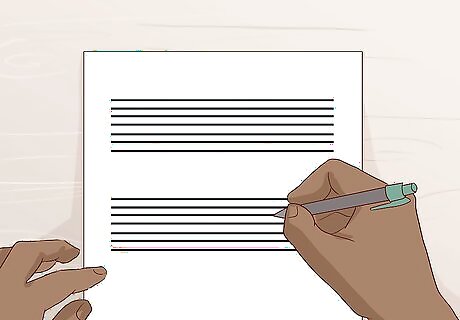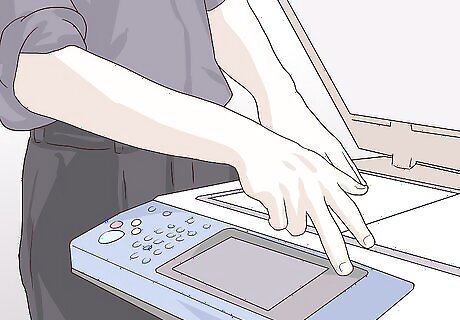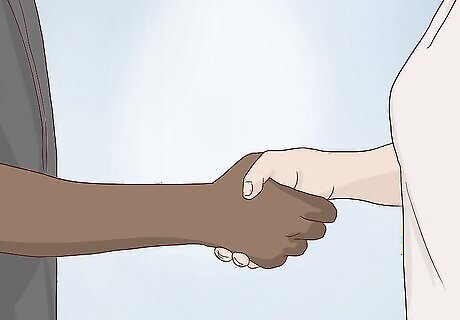
views
Drafting Your Divorce Papers

Satisfy the residency requirement. You can't get divorced in Oregon if you've just moved here. Instead, you must meet at least one of the following conditions: Either spouse has been living in Oregon for at least six months. You married in Oregon and at least one spouse currently resides there.

Check if you qualify for summary dissolution. Oregon offers two types of divorce: summary dissolution and regular dissolution. The type you choose will determine which papers you file with the court. Summary dissolution is quicker, and you can file for it if you meet the following: You haven't been married for more than 10 years. You don't have any children together under age 18, or age 18-20 and in school. The wife is not pregnant. You and your spouse don't own any real property, which includes buildings, land, and houses. Together, you own under $30,000 in personal property. (If you have a car, deduct the amount of the car loan from its value.) You don't have combined debts that total more than $15,000. Neither spouse wants spousal support (alimony). You don't want temporary orders other than a family restraining order, such as temporary alimony. You don't have any divorce actions ongoing in another state.

Complete your forms. Obtain the appropriate forms from the court clerk. You can also download forms from the court's website. Make sure to get everything, including a set of instructions. Generally, you'll need to fill out a petition, summons, and affidavit of service form. If you have children, then you will fill out additional forms.

Hire a divorce lawyer, if necessary. You can get divorced without a lawyer. However, you should hire a lawyer if you have a lot of marital property, or if you expect a child custody dispute. You should also work with a lawyer if you are ever confused about what to do. Some courts have family law facilitators who can help you, but in other courts you are on your own. Get a referral to a divorce lawyer by calling toll-free 800-452-7636 or completing the online form at https://www.osbar.org/public/ris/. If you hire a lawyer, they will fill out your forms, file them, and serve copies on your spouse.
Filing Your Papers

Make copies of all forms. You'll need a copy for your records. You also need to give your spouse a copy of them, so make several extra copies just to be safe.

File your papers in the correct court. You'll file in the county where you or your spouse lives. If you have children, then you should file in the county where the children currently live, even if you don't.

Pay your filing fee. Call ahead of time to find out acceptable methods of payment and the amount. If you can't afford the fee, ask the court clerk if you can have them waived or deferred. You'll need to fill out a form with information about your finances. If the fees are waived, you never have to pay them. However, if they are deferred, you'll pay them at a later date.
Serving Papers on Your Spouse

Ask your spouse to agree to service. If they agree, all they need to do is sign an Acceptance of Service form and return it to you. If your spouse won't agree to accept the papers, you'll need to have them formally served. If your spouse signs, then file the form with the court.

Arrange for service. You can have the papers served by the sheriff, a private process server, or someone 18 or older who isn't a party to the case. Both the sheriff and the process server will charge a fee for delivery (around $50). Whoever makes service should complete the affidavit of service form and return it to you.

Talk to the clerk if you can't find your spouse. It's possible to get divorced even if you can't find where you spouse currently lives. However, you'll need to do a lot of research to try to find them. You'll also need the judge to give you permission to serve by publication in a newspaper. You must perform a thorough search. Talk to an attorney. For example, you need to contact government agencies such as the Department of Motor Vehicles, Voter Registration, and the Post Office. You also need to talk to your spouse's friends and family and follow up on any leads.

Wait for your spouse's response. Your spouse has 30 days to respond by filing an answer and sending you a copy. How they respond will determine your next steps. If your spouse doesn't contest the divorce, you can get a final judgment in about two months. Read your instructions to see what you must submit to the court to request this final judgment. If your spouse contests anything—child custody, alimony, division of marital property—you'll need to schedule a court hearing. In fact, you'll probably have several court hearings, since a contested divorce can take over a year to complete.




















Comments
0 comment